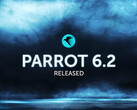Debian 13 will launch with official 64-bit RISC-V support on August 9, 2025.
Code-named Trixie, the OS joins other Linux distributions, including Fedora, FreeBSD, OpenBSD, openSUSE, and Ubuntu, in officially supporting the open standard RISC-V architecture. Trixie only supports 64-bit, little-endian RISC-V CPUs.
RISC-V was developed in 2010 by the University of California, Berkeley and has been steered by RISC-V International since 2015 as a free, open architecture standard, unlike others from ARM, AMD, and Intel that require licensing. Debian was first released in 1993 as one of the original, free distributions of Linux and has been the basis for many dozens of other distributions.
The distribution focuses on releasing a stable, reliable, and secure OS. Besides the usual security improvements, Trixie switches from 32-bit to 64-bit timekeeping, directly mitigating clock overflow problems in 2038.
Readers who want to explore the latest Debian OS can buy a RISC-V computer from Amazon and read about the architecture in this book on Amazon.

















